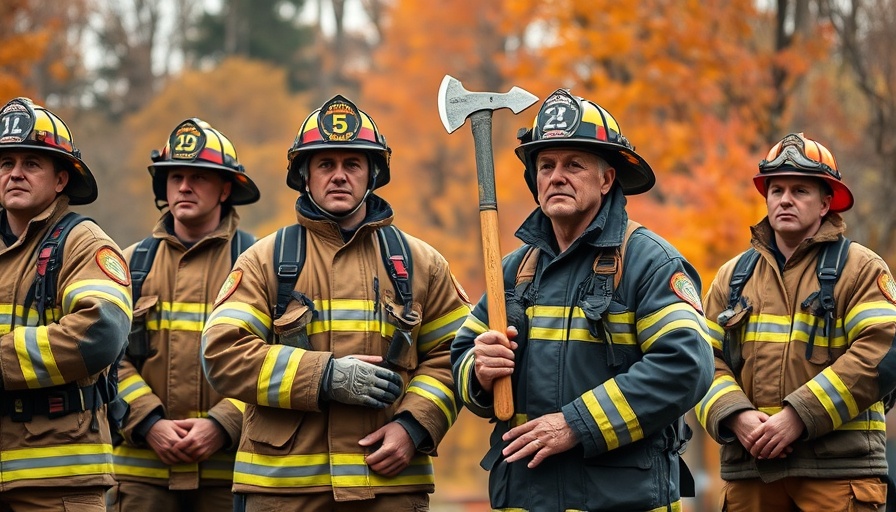
B.C. Firefighter's Journey: Unforeseen Struggles with U.S. Border Control
In a baffling turn of events that could send ripples across the international firefighting community, Jamie Flynn, a British citizen and Canadian permanent resident, faced a shocking denial of entry into the United States. A firefighter from Squamish, B.C., Flynn was on his way to represent Vancouver firefighters at the World Police and Fire Games in Alabama. The sting was particularly sharp given his dedication; Flynn had devoted months training for this moment, only to have it culminate in disappointment at the airport.
Understanding the Electronic System for Travel Authorization (ESTA)
Flynn's entry denial came on the grounds that his Electronic System for Travel Authorization (ESTA) had expired. ESTA is crucial for travelers from Visa Waiver Program countries, allowing for shorter visits without obtaining a visa. Such system failures can happen for various reasons, from clerical errors to miscommunication. In Flynn's case, he reported that upon checking the app for his travel status, the only message he encountered was "travel not authorized." This leaves many questioning the reliability of digital systems meant to facilitate international travel.
The Emotional Toll of Denial
The emotional impact on Flynn was immediate and profound. "It's annoying because I’ve spent three months training for this event and everything just crumbled in a second," he lamented. This reflects a deeper sentiment many travelers experience when facing unexpected travel disruption: the feeling of lost opportunity. For firefighters like Flynn, whose profession is steeped in camaraderie, showcasing their skills on an international platform is not just an honor, but a chance to forge connections with peers worldwide.
Questionable Communication and Transparency from Authorities
Adding to the confusion, Flynn reported that neither the U.S. Consulate nor the ESTA program provided him with any explanations regarding his denied entry. He emphasized the lack of transparency and the absence of a chance to appeal the decision. This commentary highlights a growing frustration that many travelers have expressed regarding bureaucratic processes in immigration and travel authorizations—areas often clouded in inconsistency and ambiguity.
Potential Changes to Travel Regulations? Insights from Current Events
Flynn's experience raises broader questions about travel regulations and how they could potentially be updated. As global circumstances evolve, especially in the realms of security and border control, the U.S. authorities might need to reevaluate their procedures to ensure fair treatment and clarity for travelers. Adaptations could refine their systems for more effective communication and increased traveler support, especially for those with established records of safety and responsibility.
A Call for Unity in the Firefighting Community
This incident has far-reaching implications, not just for Jamie Flynn but for the global firefighting network, emphasizing solidarity among firefighters. Conversations are emerging around creating support systems for affected individuals before professional events. Stakeholders can consider lobbying for more streamlined communication lines between international firefighters and immigration agencies, ensuring that no other professional loses a chance due to miscommunication.
Wrap-Up: What Can We Learn?
Flynn's situation is reminiscent of struggles faced by many who navigate international borders. As discussions unfold regarding necessary reforms in international travel processes, it serves as a reminder of the human aspect behind these regulations. Advocacy for clearer communication and support systems could greatly enhance the international travel experience for countless professionals.
As bureaucracy evolves, the story of Jamie Flynn can empower future dialogue about traveler rights and responsibilities. If you find this topic resonates with you, consider reaching out to local representatives about improving travel regulations to address similar discrepancies.
 Add Row
Add Row  Add
Add 




Write A Comment